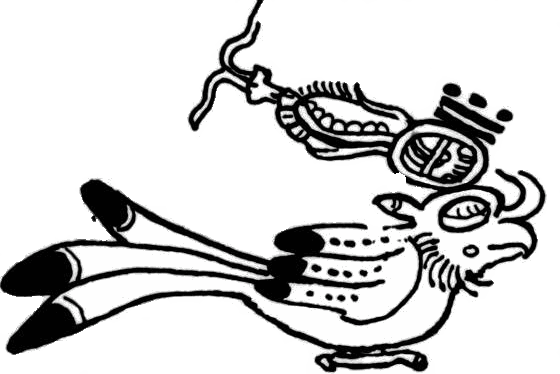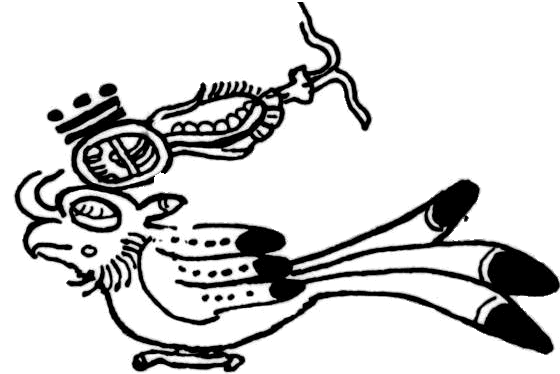
イヴァン・イリッチ
Iván Illich,
1926-2002

Iván Illich (Viena, 4 de septiembre de 1926 - Bremen, 2 de diciembre de 2002) fue un pensador austríaco polifacético y polémico, clasificado como anarquista, autor de una serie de críticas a las instituciones clave del progreso en la cultura moderna. Criticó la educación escolar, la medicina profesional y de patente, el trabajo ajeno y no creador, y el consumo voraz de energía necesaria para el desarrollo económico como una negación de la equidad y la justicia social, entre otros muchos temas.1 Su obra se inscribe dentro de las corrientes antiindustriales. -Iván Illich.
Ivan Illich
(/ɪˈvɑːn ˈɪlɪtʃ/; 4 September 1926 – 2 December 2002)
was a Croatian-Austrian philosopher, Roman Catholic priest, and critic
of the institutions of modern Western culture, who addressed
contemporary practices in education, medicine, work, energy use,
transportation, and economic development. The book that brought Ivan
Illich to public attention was Deschooling Society published in 1971.
It was a groundbreaking critique of compulsory mass education. He
argued that the oppressive structure of the school system could not be
reformed but must be dismantled in order to free humanity from the
crippling effects of lifelong institutionalization. -Ivan Illich.
イヴァン・イリッチ(/ɪˈɪˈɪ
1926年9月4日 -
2002年12月2日)は、クロアチア・オーストリアの哲学者、ローマ・カトリック司祭、近代西洋文化の制度批判者であり、教育、医療、労働、エネルギー
利用、交通、経済発展における現代の慣行を取り上げた。イワン・イリッチが世間から注目されるきっかけとなったのは、1971年に出版された『脱学校化す
る社会』である。イワン・イリッチの著書は、1971年に出版された『脱学校化する社会』である。彼は、学校制度という抑圧的な構造を改革することはでき
ないが、生涯にわたって制度化されるという不自由な影響から人類を解放するためには、解体しなければならないと主張した。
●イヴァン・イリイチ(ウィキペディアによる)
| 思想 |
思想家としてのイリイチは、学校、交通、医療といった社会的サービスの
根幹に、道具的な権力、専門家権力を見て、過剰な効率性を追い求めるがあまり人間の自立、自律を喪失させる現代文明を批判。それらから離れて地に足を下ろ
した生き方を模索した。 |
| 脱学校化 |
学校教育においては、真に学びを取り戻すために、学校という制度の撤廃
を提言。パウロ・フレイレの革命的教育学と並んで、地下運動から国際機関まで世界中を席捲した。イリイチの論は「脱学校論」として広く知られるようにな
り、当時以降のフリースクール運動の中で、指導的な理論のひとつになった。 |
| バナキュラー |
バナキュラーは、そもそも、「家庭で最初に身につける言葉」などを意味
する語であるが、イリイチは、この言葉が有給の家庭教師を雇わずとも身につけられることに焦点を当て、バナキュラーを「一般の市場で売買されないもの」と
拡大規定した。しかし、近代産業社会のサービスによって、このバナキュラーは交換可能なものとなり、結果として、人びとの生活からバナキュラリズムが失わ
れていくさまをイリイチは指摘している。 |
| 生計・生業 |
サブシステンス (subsistence)
とは、「シャドウ・ワーク」での訳者の玉野井芳郎の解説によると、「これはすでにイリイチ理論の先達ポランニーが重要視していた用語であり、市場経済、産
業経済に対置されるキーワードであるが、これの含意する内容もかなり多義的である。地域の民衆が生活の自立・自存を確立するうえの物質的精神的基盤という
ほどの意味であると解される。それゆえこの言葉には『人間生活の自立・自存』といった訳語をひとまずあてておいた」とされている。またこの本のイリイチ自
身の注では以下のように記載されている。「私はこの用語を使うべきだろうか。この言葉は数年前までは、英語では『サブシステンスの農業』という使い方に
よって独占されていた。これは辛うじて生存している数十億人の人々のことを意味した。開発当局はこの運命から彼らを救うべきものとしている。あるいはこの
言葉は、一人の浮浪者がドヤ街でやっと生きてゆく最低限を意味した。また、最後には、賃金とも同一視された。これらの混乱をさけるために、『公的選択の三
つの次元』のなかで、私は『ヴァナキュラー』という用語の使用を提唱した。これは商品というものの反対概念として…。(中略)私はヴァナキュラーな活動と
ヴァナキュラーな領域について話したい。にもかかわらず、ここでは私はこの表現をさけようとしている。なぜならこのエッセイだけで「ヴァナキュラーな価
値」を読者に熟知させることを期待することはできないからだ。(しかし、この本の第二章を参照せよ。)使用価値を中心とする活動、非金銭的な取引、埋めこ
まれた経済活動、実体=実在的な経済学、これらはすべて、これまで試みられてきた用語である。私はこの論文では『サブシステンス』に固執する。たとえ経済
活動が支払われようと支払われまいと、私は、形式的な通常の経済の意のままになっている活動にサブシステンス指向の活動を対置させようと思う。そして、経
済活動の範囲内で、賃金と<シャドウ・ワーク>が照応するフォーマルな部分とインフォーマルな部分の区別をしようと思う」(pp.245-246)。 |
| シャドウ・ワーク |
イリイチは、バナキュラーの実態と変容を探るべく、家庭の主婦の家事労
働などに目を向け、産業サービス社会において報酬を受けない再生産労働を「シャドウ・ワーク」(影法師の仕事―鶴見和子の訳)と命名した。イリイチの理論
枠組みからすれば、学校のなかの生徒、病院における患者、交通機関における通勤・通学者もまた、シャドウ・ワークの担い手なのであるが、この概念化は、と
りわけ女性の家庭内労働の新たな捉え方として注目されることになった。 |
| ジェンダー |
シャドウ・ワークの分析の後、イリイチは、産業化とバナキュラーの対立
軸において、ユニセックス化とジェンダーの対立を設定。すなわち、産業社会においては、ジェンダーがセックスから離床し、バナキュラーな男女のジェンダー
が失われることで、中性的な「経済セックス」化がなされていると批判した。バナキュラーなジェンダーが中性化され、近代産業社会における経済分業を担う
「経済セックス」者となることで、賃労働を担う男性とシャドウ・ワークを担う女性とに振り分けられているというのである。イリイチの共感者たちによれば、
イリイチの議論の意義は、産業経済社会における労働・分業や生産・消費のありようが、あたかも本来的なものであるかのように制度化、客観化されてしまって
いる状況を明らかにし、既存の近代社会科学の枠組みから離れた新たな問題設定を行おうとする点にあるが[6]、当時のフェミニストは、それを実態論的に捉
え、男女差別の固定化を唱えるものだとして批判した。 |
| 医原病 |
また、イリイチは、医療制度は「専門家依存」をもたらすものであり、す
なわち人間個々人の能力を奪い、不能化するものであると批判し、これを広義の医原病(社会的医原病、文化的医原病)であるとしている(→「近代医療が患者にたいして復讐する日」)。 |
●年譜
1926 クロアチアのカソリック教徒の 父(イヴァン・ペーター・イリッチ)とセファルディのユダヤ教徒の母(Ellen née Regenstreif-Ortlieb)の間に、ウィーンで生まれる。
1942-1946 He studied histology and crystallography at the University of Florence (Italy) as well as theology and philosophy at the Pontifical Gregorian University in Rome (from 1942 to 1946), and medieval history in Salzburg.
1951 ニューヨーク・マンハッタンの プエルトリコ人街の教会の神父として赴任
1956 プエルトリコのカトリック大学 の副学長
1961 モレロス州クエルナバカに国際 文化形成センター (CIF) を設立
1967 ラテンアメリカと産業制度を研 究する場「国際文化情報センター」 (CIDOC) へと改組
1960年代末「CIAによる報告も受け たバチカンはイリイチを呼び出し、地下奥深くで覆面の神の使いによる異端審問さながらの質問を浴びせる も、イリイチはこの質問状を公開したことから、バチカンの怒りは頂点に達した。第2バチカン公会議にも関与したイリイチであったが、こうして1969年に 司祭の資格を放棄し教会活動を去ることになった」(日本語版ウィキ:イヴァン・イリイ チ)
1971 Celebration of Awareness (1971)
1971 Deschooling Society (1971)
ne société sans école (1971) d'Ivan Illich
1972
1973 Tools for Conviviality (1973)
1973 Energy and Equity (1974)
1975 Medical Nemesis (1975)
1976 After
deschooling, what? (1976)
『脱学校化の可能性——学校をなくせばどうなるか』(東京創元社、1979年)
1978 The Right to Useful Unemployment (1978):邦訳は「創造的失業の権利」として『エネルギーと公正』(pdfがネットで手に入ります)ファイルの最初の小文字4文字を入れてください:cscd-Ivan Illich_ The Right to Useful Unemployment.pdf
1978 Toward a History of Needs (1978)
1978 Disabling
professions (1978) 『専門家時代の幻想』(新評論、1984年)
1980 (パウロ・フレイレ)『対話・
教育を超えて——I・イリイチ vs P・フレイレ』(野草社、1980年)
1981 Shadow Work (1981)
1982 Gender (1982)
1984
Ivan Illich in Dallas (H2O and the Waters of Forgetfulness) part 1
Ivan Illich in Dallas (H2O
and the
Waters of Forgetfulness) part 2
Ivan Illich: Gordian
Troeller - Kein Respekt vor Heiligen Kuehen
1985 H2O and the Waters of Forgetfulness (1985)
1988 ABC: The
Alphabetization of the Popular Mind
(1988)(B・サンダース)『ABC——民衆の知性のアルファベット化』
1992 In the Mirror of the Past (1992)
1993 In the Vineyard of the Text: A Commentary to Hugh's Didascalicon (1993)
1992 Ivan Illich
in Conversation interviews with David Cayley
(1992)
2000 Corruption of Christianity D. Cayley (ed.) (2000)
2002 12月2日 ガンにて死亡
2005 The Rivers North of the Future: The Testament of Ivan Illich as told to David Cayley (2005)
2011 ピーター・バーガーのイリッチ 批評
「つまるところ、イリイチ(イリッチ)は近代が嫌いであった。左翼
思想の賞讃者が考えるのとは反対に、彼はヨーロッパ的な言葉の十全な意味合いにおいて、心底、保守的であった。彼にもしユートピアなどというものがあった
としたら、それは中世であった。ブリギッテと私は、当時も今も近代が好きである。私たちは近代を批判し、その諸制度を改善することに関心をもってはいる
が、教育や保健医療や地域政府における近代諸制度をガンジー(ガンディ)もどきの施策に置き換えようとは思わない」。——退屈させずに世界を説明する方法
: バーガー社会学自伝 / ピーター・バーガー著 ; 森下伸也訳,東京 : 新曜社 , 2015.5
●イヴァン・イリイチ(ウィキペディアに よる)
| 思想 |
思想家としてのイリイチは、学校、交通、医療といった社会的サービスの
根幹に、道具的な権力、専門家権力を見て、過剰な効率性を追い求めるがあまり人間の自立、自律を喪失させる現代文明を批判。それらから離れて地に足を下ろ
した生き方を模索した。 |
| 脱学校化 |
学校教育においては、真に学びを取り戻すために、学校という制度の撤廃
を提言。パウロ・フレイレの革命的教育学と並んで、地下運動から国際機関まで世界中を席捲した。イリイチの論は「脱学校論」として広く知られるようにな
り、当時以降のフリースクール運動の中で、指導的な理論のひとつになった。 |
| バナキュラー |
バナキュラーは、そもそも、「家庭で最初に身につける言葉」などを意味
する語であるが、イリイチは、この言葉が有給の家庭教師を雇わずとも身につけられることに焦点を当て、バナキュラーを「一般の市場で売買されないもの」と
拡大規定した。しかし、近代産業社会のサービスによって、このバナキュラーは交換可能なものとなり、結果として、人びとの生活からバナキュラリズムが失わ
れていくさまをイリイチは指摘している。 |
| 生計・生業 |
サブシステンス (subsistence)
とは、「シャドウ・ワーク」での訳者の玉野井芳郎の解説によると、「これはすでにイリイチ理論の先達ポランニーが重要視していた用語であり、市場経済、産
業経済に対置されるキーワードであるが、これの含意する内容もかなり多義的である。地域の民衆が生活の自立・自存を確立するうえの物質的精神的基盤という
ほどの意味であると解される。それゆえこの言葉には『人間生活の自立・自存』といった訳語をひとまずあてておいた」とされている。またこの本のイリイチ自
身の注では以下のように記載されている。「私はこの用語を使うべきだろうか。この言葉は数年前までは、英語では『サブシステンスの農業』という使い方に
よって独占されていた。これは辛うじて生存している数十億人の人々のことを意味した。開発当局はこの運命から彼らを救うべきものとしている。あるいはこの
言葉は、一人の浮浪者がドヤ街でやっと生きてゆく最低限を意味した。また、最後には、賃金とも同一視された。これらの混乱をさけるために、『公的選択の三
つの次元』のなかで、私は『ヴァナキュラー』という用語の使用を提唱した。これは商品というものの反対概念として…。(中略)私はヴァナキュラーな活動と
ヴァナキュラーな領域について話したい。にもかかわらず、ここでは私はこの表現をさけようとしている。なぜならこのエッセイだけで「ヴァナキュラーな価
値」を読者に熟知させることを期待することはできないからだ。(しかし、この本の第二章を参照せよ。)使用価値を中心とする活動、非金銭的な取引、埋めこ
まれた経済活動、実体=実在的な経済学、これらはすべて、これまで試みられてきた用語である。私はこの論文では『サブシステンス』に固執する。たとえ経済
活動が支払われようと支払われまいと、私は、形式的な通常の経済の意のままになっている活動にサブシステンス指向の活動を対置させようと思う。そして、経
済活動の範囲内で、賃金と<シャドウ・ワーク>が照応するフォーマルな部分とインフォーマルな部分の区別をしようと思う」(pp.245-246)。 |
| シャドウ・ワーク |
イリイチは、バナキュラーの実態と変容を探るべく、家庭の主婦の家事労
働などに目を向け、産業サービス社会において報酬を受けない再生産労働を「シャドウ・ワーク」(影法師の仕事―鶴見和子の訳)と命名した。イリイチの理論
枠組みからすれば、学校のなかの生徒、病院における患者、交通機関における通勤・通学者もまた、シャドウ・ワークの担い手なのであるが、この概念化は、と
りわけ女性の家庭内労働の新たな捉え方として注目されることになった。 |
| ジェンダー |
シャドウ・ワークの分析の後、イリイチは、産業化とバナキュラーの対立
軸において、ユニセックス化とジェンダーの対立を設定。すなわち、産業社会においては、ジェンダーがセックスから離床し、バナキュラーな男女のジェンダー
が失われることで、中性的な「経済セックス」化がなされていると批判した。バナキュラーなジェンダーが中性化され、近代産業社会における経済分業を担う
「経済セックス」者となることで、賃労働を担う男性とシャドウ・ワークを担う女性とに振り分けられているというのである。イリイチの共感者たちによれば、
イリイチの議論の意義は、産業経済社会における労働・分業や生産・消費のありようが、あたかも本来的なものであるかのように制度化、客観化されてしまって
いる状況を明らかにし、既存の近代社会科学の枠組みから離れた新たな問題設定を行おうとする点にあるが[6]、当時のフェミニストは、それを実態論的に捉
え、男女差別の固定化を唱えるものだとして批判した。 |
| 医原病 |
また、イリイチは、医療制度は「専門家依存」をもたらすものであり、す
なわち人間個々人の能力を奪い、不能化するものであると批判し、これを広義の医原病(社会的医原病、文化的医原病)であるとしている。 |
●イヴァン・イリッチ(Ivan Dominic Illich) 紹介
| Ivan Dominic Illich (/ɪˌvɑːn ˈɪlɪtʃ/ iv-AHN IL-itch, German: [ˈiːvan ˈɪlɪtʃ]; 4 September 1926 – 2 December 2002) was an Austrian Roman Catholic priest, theologian, philosopher, and social critic.[1] His 1971 book Deschooling Society criticises modern society's institutional approach to education, an approach that constrains learning to narrow situations in a fairly short period of the human lifespan. His 1975 book Medical Nemesis, importing to the sociology of medicine the concept of medical harm, argues that industrialised society widely impairs quality of life by overmedicalising life, pathologizing normal conditions, creating false dependency, and limiting other more healthful solutions.[2] Illich called himself "an errant pilgrim."[3] | イヴァン・ドミニク・イリッチ(/ɪʃ/ iv-AHN
IL-itch, ドイツ語: ˈɪʃ, 1926年9月4日 -
2002年12月2日)は、オーストリアのローマ・カトリック司祭、神学者、哲学者、社会批評家。 [1]1971年の著書『Deschooling
Society(脱学校化する社会)』では、現代社会の教育に対する制度的アプローチを批判している。このアプローチは、人間の寿命の中でもかなり短い期
間の狭い状況に学習を制約するものである。1975年の著書『Medical
Nemesis』では、医学社会学に医学的危害の概念を導入し、工業化社会が生活を過剰に医療化し、正常な状態を病理化し、誤った依存を生み出し、他のよ
り健康的な解決策を制限することで、広く生活の質を損なっていると主張している[2]。 |
| Early life Ivan Dominic Illich was born on 4 September 1926 in Vienna, Austria, to Gian Pietro Ilic (Ivan Peter Illich) and Ellen Rose "Maexie" née Regenstreif-Ortlieb.[4] His father was a civil engineer and a diplomat from a landed Catholic family of Dalmatia, with property in the city of Split and wine and olive oil estates on the island of Brač. His mother came from a Jewish family that had converted to Christianity from Germany and Austria-Hungary (Czernowitz, Bukowina).[5] Ellen Illich was baptized Lutheran but converted to Catholicism upon marriage.[6][7] Her father, Friedrich "Fritz" Regenstreif, was an industrialist who made his money in the lumber trade in Bosnia, later settling in Vienna, where he built an art nouveau villa. Ellen Illich traveled to Vienna to be attended by the best doctors during birth. Ivan's father was not living in Central Europe at the time. When Ivan was three months old, he was taken along with his nurse to Split, Dalmatia (by then part of the Kingdom of Yugoslavia), to be shown to his paternal grandfather. There he was baptized on 1 December 1926.[8] In 1929 twin boys, Alexander and Michael, were born in the family. |
生い立ち イヴァン・ドミニク・イリッチは1926年9月4日、オーストリアのウィーンでジャン・ピエトロ・イリッチ(イヴァン・ピーター・イリッチ)とエレン・ ローズ "マエクシー"(旧姓レーゲンシュトライフ=オルトリーブ)の間に生まれた[4]。父親はダルマチアの地主カトリック一家の土木技師で外交官。エレン・イ リッチはルター派の洗礼を受けたが、結婚と同時にカトリックに改宗した[6][7]。父フリードリッヒ・"フリッツ"・レーゲンストライフは実業家で、ボ スニアの木材貿易で財を成し、後にウィーンに定住してアール・ヌーヴォーの別荘を建てた。 エレン・イリッチは出産の際、最高の医師に診てもらうためにウィーンに渡った。当時、イワンの父親は中欧に住んでいなかった。イワンが生後3ヶ月のとき、 看護婦とともにダルマチア(当時はユーゴスラビア王国の一部)のスプリットに連れて行かれ、父方の祖父に引き合わされた。1926年12月1日、そこで洗 礼を受けた[8]。1929年、一家に双子の男の子、アレクサンダーとミヒャエルが生まれた。 |
| Work in Europe and the Americas In 1942, Ellen Illich and her three children—Ivan, Alexander, and Michael—left Vienna, Austria for Florence, Italy, escaping the Nazi persecution of Jews. Illich finished high school in Florence, and then went on to study histology and crystallography at the local University of Florence.[9] Hoping to return to Austria following World War II, he enrolled in a doctorate in medieval history at the University of Salzburg[10] with the hope of gaining legal residency as he was undocumented.[9] He wrote a dissertation focusing on the historian Arnold J. Toynbee, a subject to which he would return in his later years. While working on his doctorate, he returned to Italy where he studied theology and philosophy at the Pontifical Gregorian University in Rome, as he wanted to become a Catholic priest. He was ordained as a Catholic priest in Rome in 1951 and served his first Mass in the catacombs where the early Roman Christians hid from their persecutors.[5] A polyglot, Illich spoke Italian, Spanish, French, and German fluently.[10][11][12] He later learned Croatian, the language of his grandfathers, then Ancient Greek and Latin, in addition to Portuguese, Hindi, English, and other languages.[10] Following his ordination in 1951, he "signed up to become a parish priest in one of New York's poorest neighborhoods—Washington Heights, on the northern tip of Manhattan, at that time a barrio of newly-arrived Puerto Rican immigrants."[13] In 1956, at the age of 30, he was appointed vice rector of the Catholic University of Puerto Rico, "a position he managed to keep for several years before getting thrown out—Illich was just a little too loud in his criticism of the Vatican's pronouncements on birth control and comparatively demure silence about the nuclear bomb."[13] It was in Puerto Rico that Illich met Everett Reimer and the two began to analyze their own functions as "educational" leaders. In 1959, he traveled throughout South America on foot and by bus.[10] The end of Illich's tenure at the university came in 1960 as the result of a controversy involving bishops James Edward McManus and James Peter Davis, who had denounced Governor Luis Muñoz Marín and his Popular Democratic Party for their positions in favor of birth control and divorce. The bishops also started their own rival Catholic party.[14] Illich later summarized his opposition: As a historian, I saw that it violated the American tradition of Church and State separation. As a politician, I predicted that there wasn't enough strength in Catholic ranks to create a meaningful platform and that failure of McManus's party would be disastrous on the already frail prestige of the Puerto Rican Church. As a theologian, I believe that the Church must always condemn injustice in the light of the Gospel, but never has the right to speak in favor of a specific political party.[15] After Illich disobeyed a direct order from McManus forbidding all priests from dining with Governor Muñoz, McManus ordered Illich to leave his post at the university, describing his presence as "dangerous to the Diocese of Ponce and its institutions."[14] Despite this display of insubordination and an order from Paul Francis Tanner, then general secretary of the National Catholic Welfare Conference, forbidding Illich from any official role in the organization's Latin American bureau, Illich maintained the support of the influential priest John J. Considine, who continued to push for Illich to have a role in training the Church's missionaries, personally funding trips to Mexico in order for Illich to scout locations.[14] Following his departure from Puerto Rico, Illich moved to Cuernavaca, Mexico, where he founded the Center of Intercultural Formation (CIF) in 1961, originally as missionary training center.[9] As the center became more influential it became the Centro Intercultural de Documentación (CIDOC, or Intercultural Documentation Center),[9] ostensibly a research center offering language courses to missionaries from North America and volunteers of the Alliance for Progress program[10] initiated by John F. Kennedy. His real intent was to document the participation of the Vatican in the "modern development" of the so-called Third World. Illich looked askance at the liberal pity or conservative imperiousness that motivated the rising tide of global industrial development. He viewed such emissaries as a form of industrial hegemony and, as such, an act of "war on subsistence". He sought to teach missionaries dispatched by the Church not to impose their own cultural values.[16] "Throughout the late 1960s and early 1970s, CIDOC was part language school and part free university for intellectuals from all over the Americas."[13] At the CIDOC, "Illich was able to develop his potent and highly influential critique of Third World development schemes and their fresh-faced agents: Kennedy's Alliance for Progress, the Peace Corps, and countless other missionary efforts bankrolled and organized by wealthy nations, foundations, and religious groups."[13] After ten years, critical analysis from the CIDOC of the institutional actions by the Church brought the organization into conflict with the Vatican. Unpopular with the local chapter of Opus Dei,[13] Illich was called to Rome for questioning, due in part to a CIA report.[10][9] While he was not convicted or punished by the Vatican, it was then that he decided to renounce active priesthood.[9] In 1976, Illich, apparently concerned by the influx of formal academics and the potential side effects of its own "institutionalization", shut the center down with consent from the other members of the CIDOC. Several of the members subsequently continued language schools in Cuernavaca, some of which still exist. Illich, who had been made a Monsignor at 33 himself resigned from the active priesthood in the late 1960s,[17] but continued to identify as a priest and occasionally performed private masses. In the 1970s, Illich was popular among leftist intellectuals in France, his thesis having been discussed in particular by André Gorz. However, his influence declined after the 1981 election of François Mitterrand as Illich was considered too pessimistic at a time when the French Left took control of the government.[10] In the 1980s and beyond, Illich traveled extensively, mainly splitting his time between the United States, Mexico, and Germany. He held an appointment as a Visiting Professor of Philosophy, Science, Technology and Society at Penn State. He also taught at the University of Bremen and University of Hagen.[18] During his last days of his life he admitted that he was greatly influenced by one of the Indian economists and adviser to M. K. Gandhi, J. C. Kumarappa, most notably, his book, Economy of Permanence.[19] While Illich never referred to himself as an anarchist in print, he was closely associated with major figures in left-anarchist circles, notably Paul Goodman and unschooling advocate John Holt. Goodman is credited in Deschooling Society with having "radically obliged" Illich to revise his thinking, and described with great affection in Illich's 1990s interviews with David Cayley: ... I loved Goodman very much, but not from the beginning. In 1951, as a twenty-six-year-old man newly arrived in New York, I went to a public debate. This strange person arrived and fascinated everybody with his way of presenting himself. I was just then having my first experiences of sitting through cold turkey with neighbourhood kids from Washington Heights, and this guy carefully phrased his proposal that New York immediately decriminalize all substances you can ingest, because otherwise the city of New York would become an unlivable city within the next few years. He had recently played a major part in getting a law passed which recognized that the state should not interfere with the private activities of consenting adults. Well, I was shocked! I would not have suspected that within three of four years we would be good friends and that during the last part of his life he would spend considerable time with me in Cuernavaca. I consider Goodman one of the great thinkers I've known, and also a tender, touching person.[20] |
ヨーロッパとアメリカ大陸での仕事 1942年、エレン・イリッチと3人の子供たち(イヴァン、アレクサンダー、ミヒャエル)は、ナチスによるユダヤ人迫害を逃れてオーストリアのウィーンを 離れ、イタリアのフィレンツェに向かった。イリッチはフィレンツェの高校を卒業後、地元のフィレンツェ大学で組織学と結晶学を学んだ[9]。第二次世界大 戦後にオーストリアに戻ることを望み、非正規滞在者であったため合法的な居住権を得ることを希望してザルツブルク大学[10]で中世史の博士課程に入学し た[9]。博士号取得中にイタリアに戻り、カトリック司祭になるためにローマの教皇庁立グレゴリアン大学で神学と哲学を学んだ。1951年、ローマでカト リック司祭に叙階され、初期ローマのキリスト教徒が迫害から身を隠したカタコンベで最初のミサを捧げた[5]。 多言語話者であったイリッチは、イタリア語、スペイン語、フランス語、ドイツ語を流暢に話し[10][11][12]、後に祖父たちの言語であるクロアチ ア語、古代ギリシャ語、ラテン語を学び、さらにポルトガル語、ヒンディー語、英語なども習得した[10]。 1951年の司祭叙階後、彼は「ニューヨークで最も貧しい地域の一つであるマンハッタンの北端にあるワシントン・ハイツで教区司祭になるためにサインアッ プした。 「1956年、30歳のとき、彼はプエルトリコ・カトリック大学の副学長に任命され、「その職を数年間務めたが、放り出された。イリッチは、バチカンの避 妊に関する宣言に対する批判が少し大きすぎただけで、核爆弾については比較的おとなしく沈黙していた」[13]。1959年、彼は徒歩とバスで南米各地を 旅した[10]。 1960年、イリッチの大学での任期は、避妊と離婚を支持する立場からルイス・ムニョス・マリーン州知事と彼の人民民主党を糾弾したジェームズ・エドワー ド・マクマナス司教とジェームズ・ピーター・デイビス司教をめぐる論争の結果として終わった。司教たちはまた、対立するカトリック政党を立ち上げた [14]: 歴史家として、私はそれがアメリカの伝統である政教分離に反すると考えた。政治家として、私は、有意義な綱領を作るにはカトリック勢力には十分な力がな く、マクマナスの党が失敗すれば、すでに脆弱なプエルトリコ教会の威信に禍根を残すだろうと予測した。私は神学者として、教会は常に福音に照らして不正義 を非難しなければならないが、特定の政党を支持する発言をする権利は決してないと信じている[15]。 マクマナスから全司祭がムニョス知事と会食することを禁じた直接の命令にイリッチが従わなかった後、マクマナスはイリッチの存在を「ポンセ教区とその機関 にとって危険である」とし、イリッチに大学での職を去るよう命じた[14]。 このような反抗的な態度や、当時全国カトリック福祉会議の事務総長であったポール・フランシス・タナーから、同組織のラテンアメリカ支局におけるいかなる 公式の役割もイリッチに禁じる命令が出されたにもかかわらず、イリッチは影響力のある司祭ジョン・J・コンシダインの支持を維持し、コンシダインはイリッ チに教会の宣教師を養成する役割を持たせるよう働きかけ続け、イリッチに場所を偵察させるためにメキシコへの旅行を個人的に資金援助した[14]。 プエルトリコを去った後、イリッチはメキシコのクエルナバカに移り住み、1961年に異文化形成センター(CIF)を設立した。このセンターは、当初は宣 教師養成センターであったが[9]、影響力を増すにつれて、異文化ドキュメンテーションセンター(Centro Intercultural de Documentación、CIDOC)となり[9]、表向きは、北米からの宣教師や、ジョン・F・ケネディが始めた「進歩のための同盟」プログラム [10]のボランティアに語学講座を提供する研究センターとなった。彼の真の目的は、いわゆる第三世界の「近代的発展」へのバチカンの参加を記録すること だった。イリッチは、世界的な産業発展の上昇気流を動かしているリベラルな憐憫や保守的な命令口調を軽んじていた。彼は、このような使節団を産業覇権の一 形態とみなし、そのようなものとして「自給自足に対する戦争」の行為とみなした。1960年代後半から1970年代初頭にかけて、CIDOCはアメリカ全 土から集まった知識人のための語学学校であり、無料の大学でもあった: ケネディの進歩と平和のための同盟、平和部隊、そして裕福な国、財団、宗教団体によって資金提供され、組織された無数の他の宣教的な努力。 10年後、教会による組織的な行動に対するCIDOCからの批判的な分析により、組織はバチカンと対立することになった。オプス・デイの地方支部から不人 気であったイリッチは、CIAの報告書の影響もあり、尋問のためにローマに呼ばれた[10][9]。バチカンから有罪判決を受けたり処罰されたりすること はなかったが、その時、彼は現役の神職を放棄することを決意した[9]。 1976年、イリッチは、明らかに正式な学問の流入と、自らの「制度化」の潜在的な副作用を懸念し、CIDOCの他のメンバーの同意を得てセンターを閉鎖 した。その後、メンバーの何人かはクエルナバカで語学学校を続け、そのいくつかは現在も存続している。33歳でモンシニョールの称号を得たイリッチは、 1960年代後半に現役の司祭職を辞したが[17]、その後も司祭としての自認を持ち続け、時折個人的なミサを行っていた。 1970年代、イリッチはフランスの左派知識人の間で人気があり、彼の論文は特にアンドレ・ゴルツによって論じられた。しかし、1981年にフランソワ・ ミッテランが選出された後、フランス左派が政権を掌握した時期にイリッチはあまりにも悲観的であるとみなされたため、彼の影響力は低下した[10]。 1980年代以降、イリッチは主にアメリカ、メキシコ、ドイツを行き来しながら、幅広く活動した。ペンシルベニア州立大学で哲学、科学、技術、社会の客員 教授を務めた。また、ブレーメン大学やハーゲン大学でも教鞭をとっていた[18]。晩年には、インドの経済学者でM・K・ガンジーの顧問であったJ・C・ クマラッパから多大な影響を受けたことを認めており、特にその著書『永続性の経済』から大きな影響を受けたと述べている[19]。 イリッチは印刷物上では自分自身をアナーキストと呼ぶことはなかったが、左アナーキスト界の主要人物、特にポール・グッドマンや不登校の提唱者ジョン・ホ ルトと密接な関係にあった。グッドマンは『非学校化する社会』の中で、イリッチに自分の考え方を改めるよう「根本的に義務づけた」と評価されており、イ リッチの1990年代のデイヴィッド・ケイリーとのインタヴューでは、非常に愛情深く描写されている: ... 私はグッドマンをとても愛していたが、最初からそうだったわけではない。1951年、ニューヨークに来たばかりの26歳の私は、ある公開討論会に出かけ た。この奇妙な人物が現れ、その自己紹介の仕方で皆を魅了した。私はちょうどその頃、ワシントンハイツから来た近所の子供たちと冷や飯を食うという初めて の経験をしていたのだが、この人物は、ニューヨークは摂取できるすべての物質を直ちに非犯罪化せよ、さもなければニューヨーク市は今後数年のうちに住みに くい街になってしまうから、という提案を注意深く言い表した。彼は最近、同意のある成人の私的活動に国家が干渉すべきではないという法律を成立させるのに 大きな役割を果たしたばかりだった。いやあ、ショックでしたよ!まさか3、4年のうちに私たちが親友になり、彼の人生の最後の時期に私とクエルナバカでか なりの時間を過ごすことになるとは思ってもみなかっただろう。私はグッドマンを、私が知っている偉大な思想家の一人であり、また優しく感動的な人だと思っ ている[20]。 |
| Personality Ivan Illich called himself "an errant pilgrim",[3] "a wandering Jew and a Christian pilgrim",[5] while clearly acknowledging his Dalmatian roots.[21] He remarked that since leaving the old house of his grandparents on the island Brač in Dalmatia, he had never had a home.[22] Death Illich died on 2 December 2002 in Bremen, Germany. Not realised was his last wish: to die surrounded by close collaborators in Bologna amid the creation of his planned, new learning centre.[23] |
パーソナリティ イワン・イリッチは自らを「放浪の巡礼者」[3]、「放浪のユダヤ人、キリスト教の巡礼者」[5]と呼び、ダルマチア人のルーツをはっきりと認めていた [21]。 ダルマチアのブラチ島にある祖父母の古い家を出て以来、彼には家がなかったと述べている[22]。 死去 2002年12月2日、ドイツのブレーメンで死去。ボローニャで親しい協力者たちに囲まれながら、計画中の新しいラーニング・センターの建設に没するとい う彼の最後の願いは実現されなかった[23]。 |
| Philosophical views Illich followed the tradition of apophatic theology.[24] His lifework's leading thesis is that Western modernity, perverting Christianity, corrupts Western Christianity. A perverse attempt to encode the New Testament's principles as rules of behavior, duty, or laws, and to institutionalize them, without limits, is a corruption that Illich detailed in his analyses of modern Western institutions, including education, charity, and medicine, among others. Illich often used the Latin phrase Corruptio optimi quae est pessima, in English The corruption of the best is the worst.[5][25] Illich believed that the Biblical God taking human form, the Incarnation, marked world history's turning point, opening new possibilities for love and knowledge. As in the First Epistle of John,[26] it invites any believer to seek God's face in everyone encountered.[5] Describing this new possibility for love, Illich refers to the Parable of the Good Samaritan. |
哲学的見解 イリッチは否定神学(Apophatic theology) の伝統に従った[24]。彼のライフワークの主要なテーゼは、西洋近代がキリスト教を倒錯させ、西洋のキリスト教を腐敗させるというものである。新約聖書 の原理を行動規則、義務、法律として符号化し、制限なく制度化しようとする倒錯的な試みは、イリッチが教育、慈善、医療などを含む近代西洋の制度の分析で 詳述した腐敗である。イリッチはCorruptio optimi quae est pessima(英語ではThe corruption of the best is the worst)というラテン語のフレーズをよく使っていた[5][25]。 イリッチは、聖書の神が人間の姿をとること、受肉が世界史の転換点となり、愛と知識の新たな可能性を開くと信じていた。ヨハネの手紙第一のように [26]、この手紙は信者を、出会うすべての人の中に神の御顔を求めるよう招いている[5]。この新しい愛の可能性について、イリッチは「善きサマリア人 のたとえ」に言及している。 |
| Influence His first book, Deschooling Society, published in 1971, was a groundbreaking critique of compulsory mass education. He argued the oppressive structure of the school system could not be reformed. It must be dismantled in order to free humanity from the crippling effects of the institutionalization of all of life. He went on to critique modern mass medicine. Illich was highly influential among intellectuals and academics. He became known worldwide for his progressive polemics about how activity expressive of truly human values could be preserved and expanded in human culture in the face of multiple thundering forces of de-humanization.[citation needed] In his several influential books, he argued that the overuse of the benefits of many modern technologies and social arrangements undermine human values and human self-sufficiency, freedom, and dignity. His in-depth critiques of mass education and modern mass medicine were especially, pointed, relevant; and perhaps, more timely now than during his life.[fact or opinion?][citation needed] Health, argues Illich, is the capacity to cope with the human reality of death, pain, and sickness. Technology can benefit many; yet, modern mass medicine has gone too far, launching into a godlike battle to eradicate death, pain, and sickness. In doing so, it turns people into risk-averse consuming objects, turning healing into mere science, turning medical healers into mere drug-surgical technicians.[27][28][29] The Dark Mountain Project, a creative cultural movement founded by Dougald Hine and Paul Kingsnorth that abandons the myths of modern societies and looks for other new stories that help us make sense of modernity, drew their inspiration from the ideas of Ivan Illich.[30] |
影響力 1971年に出版された最初の著書『Deschooling Society』は、義務教育の大衆教育に対する画期的な批判だった。彼は、学校制度の抑圧的な構造は改革できないと主張した。生活のすべてを制度化する ことによる不自由な影響から人類を解放するためには、学校制度を解体しなければならない。彼はさらに、現代の大衆医療を批判した。イリッチは知識人や学者 の間で大きな影響力を持った。彼は、脱人間化という複数の雷鳴のような力に直面しながらも、真に人間的な価値を表現する活動が人間の文化においてどのよう に維持され、拡大されうるかについての彼の進歩的な極論で世界的に知られるようになった[要出典]。 影響力のある数冊の著書の中で、彼は、多くの近代的な技術や社会的な仕組みがもたらす恩恵の使い過ぎが、人間の価値や人間の自給自足、自由、尊厳を損なう と主張した。大衆教育や現代の大衆医療に対する彼の徹底的な批評は、特に、指摘的で、適切であり、おそらく、彼の生前よりも今がタイムリーである。 健康とは、死、痛み、病気という人間の現実に対処する能力である、とイリッチは主張する。しかし、現代の大量医療は行き過ぎ、死、痛み、病気を根絶するた めに神のような戦いを始めた。そうすることで、人々をリスク回避の消費物に変え、癒しを単なる科学に変え、医療従事者を単なる薬物外科技術者に変えてしま うのだ[27][28][29]。 ダーク・マウンテン・プロジェクトは、ダガルド・ハインとポール・キングスノースによって創設された創造的な文化運動であり、近代社会の神話を放棄し、私 たちが近代性を理解するのに役立つ他の新しい物語を探すもので、イヴァン・イリッチの考えからインスピレーションを得た[30]。 |
| Deschooling Society Illich gained public attention with his 1971 book Deschooling Society, a radical critique of educational practice in "modern" economies. Claiming examples of institutionalised education's ineffectiveness, Illich endorses self-directed education, supported by intentional social relations, in fluid informal arrangements: Universal education through schooling is not feasible. It would be no more feasible if it were attempted by means of alternative institutions built on the style of present schools. Neither new attitudes of teachers toward their pupils nor the proliferation of educational hardware or software (in classroom or bedroom), nor finally the attempt to expand the pedagogue's responsibility until it engulfs his pupils' lifetimes will deliver universal education. The current search for new educational funnels must be reversed into the search for their institutional inverse: educational webs which heighten the opportunity for each one to transform each moment of his living into one of learning, sharing, and caring. We hope to contribute concepts needed by those who conduct such counterfoil research on education—and also to those who seek alternatives to other established service industries.[31] The final sentence, above, clarifies Illich's view that education's institutionalisation fosters society's institutionalisation, and so de-institutionalising education may help de-institutionalize society. Further, Illich suggests reinventing learning and expanding it throughout society and across persons' lifespans. Particularly striking in 1971 was his call for advanced technology to support "learning webs": The operation of a peer-matching network would be simple. The user would identify himself by name and address and describe the activity for which he sought a peer. A computer would send him back the names and addresses of all those who had inserted the same description. It is amazing that such a simple utility has never been used on a broad scale for publicly valued activity. According to a contemporary review in the Libertarian Forum, "Illich's advocacy of the free market in education is the bone in the throat that is choking the public educators."[32] Yet, unlike libertarians, Illich opposes not merely publicly funded schooling, but schools as such. Thus, Illich's envisioned disestablishment of schools aimed not to establish a free market in educational services, but to attain a fundamental shift: a deschooled society. In his 1973 book After Deschooling, What?, he asserted, "We can disestablish schools, or we can deschool culture."[33] In fact, he called advocates of free-market education "the most dangerous category of educational reformers."[34] |
非学校化社会(脱学校の社会) イリッチは、1971年に出版した『Deschooling Society(脱学校化する社会)』で、「近代」経済における教育実践に対する急進的な批判を展開し、世間の注目を集めた。イリッチは、制度化された教 育が非効率的である例を主張し、流動的なインフォーマルな取り決めの中で、意図的な社会関係に支えられた自主的な教育を支持する: 学校教育による普遍教育は実現不可能である。学校教育による普遍的な教育は実現不可能であり、現在の学校の様式を基礎とした代替的な教育機関によって試み られたとしても、それ以上の実現可能性はないだろう。生徒に対する教師の新たな態度も、(教室や寝室での)教育用ハードウェアやソフトウェアの普及も、最 終的には、生徒の一生を巻き込むまで教育者の責任を拡大しようとする試みも、普遍教育を実現することはできない。新たな教育ファネルの探求は、制度的な逆 方向、つまり、一人ひとりが生きている一瞬一瞬を、学び、分かち合い、思いやることに変える機会を高める教育の網の探求へと逆転させなければならない。私 たちは、教育についてこのような反面教師的研究を行う人々や、他の既成のサービス産業に代わるものを求める人々に必要な概念に貢献したいと考えている [31]。 上記の最後の文章は、教育の制度化が社会の制度化を助長し、したがって教育の脱制度化が社会の脱制度化を助けるかもしれないというイリッヒの見解を明確に している。さらにイリッチは、学びを再発明し、それを社会全体に、そして人の一生にわたって拡大することを提案している。1971年当時、特に印象的だっ たのは、「ラーニング・ウェブ」をサポートする高度なテクノロジーを求めたことである: ピア・マッチング・ネットワークの運用は簡単だ。利用者は名前と住所を名乗り、仲間を探す活動を説明する。コンピュータは、同じ説明を挿入したすべての人 の名前と住所を彼に送り返すだろう。このような単純なユーティリティが、公的に評価される活動のために広範に使用されたことがないのは驚くべきことであ る。 リバタリアンフォーラム』誌の現代評によれば、「イリッチの教育における自由市場の擁護は、公的教育者の首を絞めている喉の骨である」[32]。しかし、 リバタリアンとは異なり、イリッチは単に公的資金による学校教育ではなく、学校そのものに反対している。したがって、イリッチが構想する学校廃止の目的 は、教育サービスにおける自由市場を確立することではなく、根本的な転換、すなわち非学校化社会を達成することであった。実際、彼は自由市場教育の提唱者 を「教育改革者の中で最も危険なカテゴリー」と呼んでいる[34]。 |
| Tools for Conviviality Tools for Conviviality was published in 1973, two years after Deschooling Society. In this newer work, Illich generalizes the themes that he had previously applied to the educational field: the institutionalization of specialized knowledge, the dominant role of technocratic elites in industrial society, and the need to develop new instruments for the reconquest of practical knowledge by the average citizen. He wrote that "[e]lite professional groups ... have come to exert a 'radical monopoly' on such basic human activities as health, agriculture, home-building, and learning, leading to a 'war on subsistence' that robs peasant societies of their vital skills and know-how. The result of much economic development is very often not human flourishing but 'modernized poverty', dependency, and an out-of-control system in which the humans become worn-down mechanical parts."[13] Illich proposed that we should "invert the present deep structure of tools" in order to "give people tools that guarantee their right to work with independent efficiency."[35] Tools for Conviviality attracted worldwide attention. A résumé of it was published by French social philosopher André Gorz in Les Temps Modernes, under the title "Freeing the Future".[36] The book's vision of tools that would be developed and maintained by a community of users had a significant influence on the first developers of the personal computer, notably Lee Felsenstein.[37][38] |
共生のための道具 『Tools for Conviviality』は、『Deschooling Society』の2年後、1973年に出版された。専門知識の制度化、産業社会における技術エリートの支配的役割、一般市民による実践的知識の再獲得の ための新たな手段を開発する必要性などである。彼は、「専門家集団は、健康、農業、家づくり、学習といった人間の基本的な活動に対して『急進的な独占』を 行うようになり、農民社会から重要な技術やノウハウを奪う『自給自足戦争』を引き起こしている」と書いている。多くの経済発展の結果は、多くの場合、人間 の繁栄ではなく、『近代化された貧困』、依存、人間が摩耗した機械部品となる制御不能のシステムである」[13]。イリッチは、「自立した効率で働く権利 を保証する道具を人々に与える」ために、「道具の現在の深い構造を反転させる」べきだと提唱した[35]。 Tools for Conviviality』は世界的に注目を集めた。この本の要約はフランスの社会哲学者アンドレ・ゴルツによって『Les Temps Modernes』に「未来を解放する」というタイトルで掲載された[36]。ユーザーのコミュニティによって開発され維持されるツールについてのこの本 のビジョンは、リー・フェルゼンシュタインをはじめとするパーソナルコンピュータの最初の開発者たちに大きな影響を与えた[37][38]。 |
| Medical Nemesis In his Medical Nemesis, first published in 1975, also known as Limits to Medicine, Illich subjected contemporary Western medicine to detailed attack. He argued that the medicalization in recent decades of so many of life's vicissitudes—birth and death, for example—frequently caused more harm than good and rendered many people in effect lifelong patients. He marshalled a body of statistics to show what he considered the shocking extent of post-operative side-effects and drug-induced illness in advanced industrial society. He introduced to a wider public the notion of iatrogenic disease,[39] which had been scientifically established a century earlier by British nurse Florence Nightingale (1820–1910). Others have since voiced similar views.[40] |
医学による復讐 1975年に発表された『医学による復讐』(『医学の限界』としても知られる)の中で、イリッチは現代の西洋医学を詳細に攻撃した。イリッヒは、ここ数十 年の間に、人生の様々な出来事、例えば誕生と死が医療化されたことで、善よりも害をもたらすことが多くなり、多くの人々が事実上、生涯の患者となってし まったと主張した。彼は、先進工業社会における術後の副作用や薬物による疾病の衝撃的な程度を示すために、多くの統計資料を集めた。彼は、イギリスの看護 師フローレンス・ナイチンゲール(1820-1910)によって1世紀前に科学的に確立されていた異所性疾患という概念[39]を、より多くの人々に紹介 した。その後、他の人々も同様の見解を表明している[40]。 |
| To Hell with Good Intentions In his 1968 speech at the Conference on InterAmerican Student Projects (CIASP), Illich strongly opposes the presence of American Roman Catholic missionaries, the Peace Corps and organizations like the CIASP themselves who invited him to speak- in Mexico. Illich says that the presence of American "do-gooders" is causing more harm than good. Rather, he suggests that the Americans should travel to Latin America as tourists or students, or else stay in their homeland, where they can at least know what they are doing.[41] |
善意などクソ食らえ 1968年の米州学生事業会議(CIASP)でのスピーチで、イリッチはアメリカのローマ・カトリック宣教師、平和部隊、そして彼を講演に招いた CIASPのような組織がメキシコに存在することに強く反対している。イリッチは、アメリカの "善人 "の存在は、善よりも害をもたらすと言う。むしろ彼は、アメリカ人は観光客や学生としてラテンアメリカを訪れるか、少なくとも自分たちが何をしているかを 知ることができる祖国に留まるべきだと提案している[41]。 |
| List of works Die philosophischen Grundlagen der Geschichtsschreibung bei Arnold J. Toynbee. Salzburg: Diss. 1951. Illich, Ivan (1971). Celebration of Awareness. ISBN 978-0-7145-0837-5. Illich, Iván (1971). Deschooling Society. ISBN 978-0-06-012139-6. Illich, Ivan (1973). Tools for Conviviality. ISBN 978-0-06-080308-7. Illich, Ivan (1974). Energy and Equity. ISBN 978-0-06-080327-8. Medical Nemesis. London: Calder & Boyars. 1974. ISBN 978-0-7145-1096-5. OCLC 224760852. Illich, Ivan (1975). Medical Nemesis. ISBN 978-0-394-71245-1. Illich, Ivan (1978). The Right to Useful Unemployment. ISBN 978-0-7145-2628-7. Illich, Ivan (1978). Toward a History of Needs. ISBN 978-0-394-41040-1. Illich, Ivan (1981). Shadow Work. ISBN 978-0-7145-2711-6. Illich, Ivan (1982). Gender. ISBN 978-0-394-52732-1. Illich, Ivan (1985). H2O and the Waters of Forgetfulness. ISBN 978-0-911005-06-6. Illich, Ivan; Sanders, Barry (1988). ABC: The Alphabetization of the Popular Mind. ISBN 978-0-86547-291-4. Coauthored with Barry Sanders Illich, Ivan (1992). In the Mirror of the Past. ISBN 978-0-7145-2937-0. Illich, Ivan (1993). In the Vineyard of the Text: A Commentary to Hugh's Didascalicon. ISBN 978-0-226-37235-8. Blasphemy: A Radical Critique of Our Technological Culture. We the People. Morristown, NJ: Aaron Press. July 1995. ISBN 978-1-882206-02-5. interviews with David Cayley, ed. (1992). Ivan Illich in Conversation. Toronto: House of Anansi Press. The Rivers North of the Future - The Testament of Ivan Illich as told to David Cayley. Toronto: House of Anansi Press. 2005. ISBN 978-0-88784-714-1. David Cayley, ed. (2000). Corruption of Christianity. ISBN 978-0-660-18099-1. Disoccupazione creativa (Creative Disoccupation), Italy, Italian, 1977 Illich, Ivan (2013). Beyond Economics and Ecology. ISBN 978-0-714531-58-8.:[42] Edited by Prof Sajay Samuel |
|
| Credentialism Critical pedagogy Critique of technology Degrowth Development criticism Ecopedagogy Free software movement Holistic education Open Source Ecology Shadow work |
|
| https://en.wikipedia.org/wiki/Ivan_Illich |
リンク
文献
その他の情報
文献
+++
 Copyleft, CC, Mitzub'ixi Quq Chi'j, 1996-2099
Copyleft, CC, Mitzub'ixi Quq Chi'j, 1996-2099
Do not paste, but [re]think this message for all undergraduate students!!!

++
Copyleft,
CC, Mitzub'ixi Quq Chi'j, 1996-2099